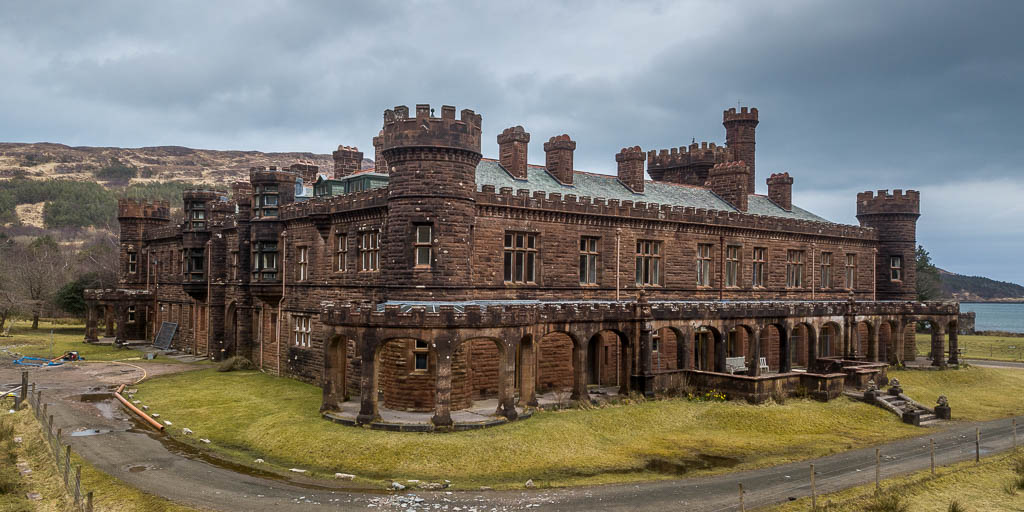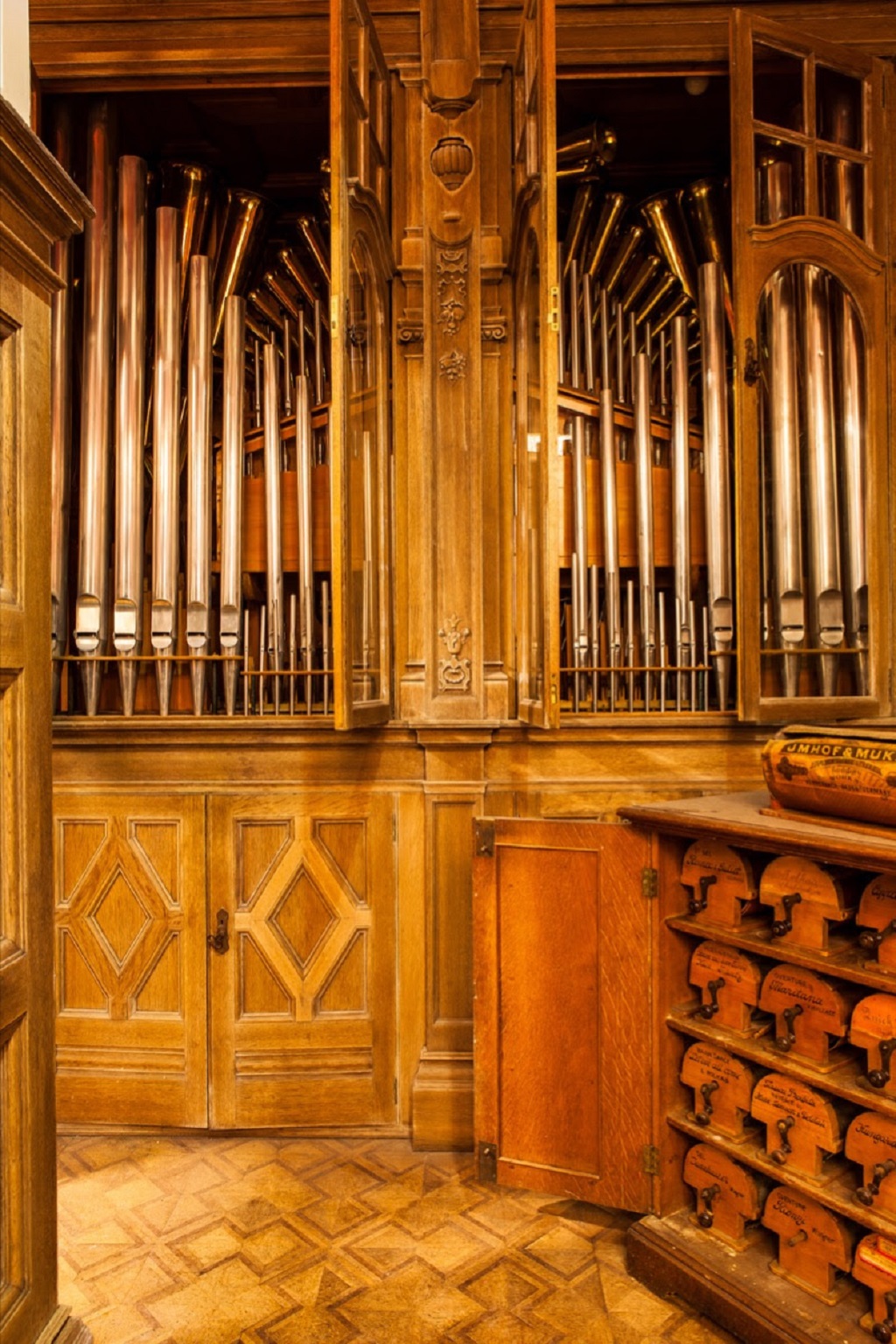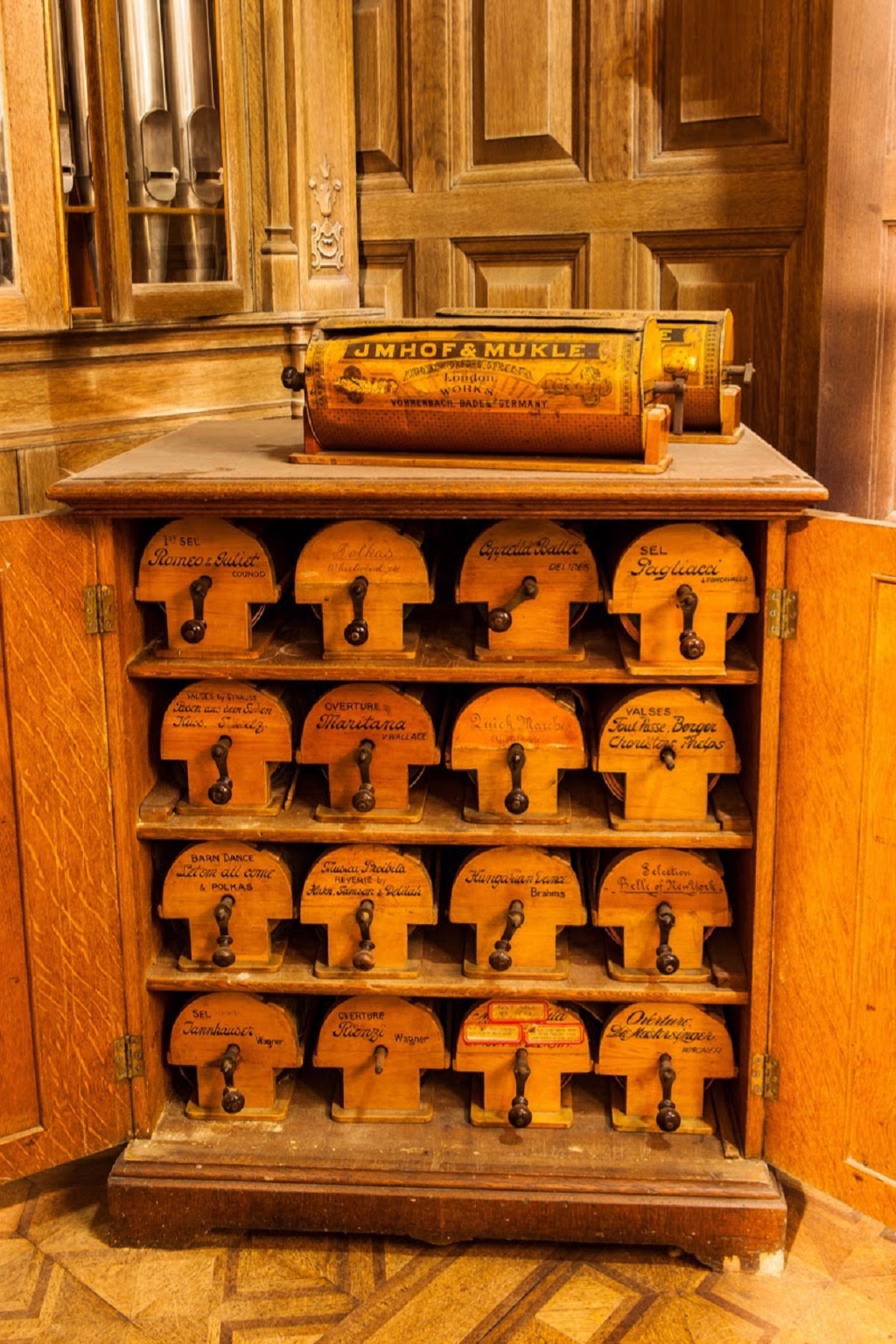
Bid to raise £60,000 to save castle’s rare instrument
A musical instrument said to have been ordered for Queen Victoria, but she died before its complete, needs extensive repairs at its home in a Scottish castle.
Tucked away under the main staircase in Kinloch Castle on the Isle of Rum is a very rare and special instrument: an Imhof and Mukle Orchestrion.
Bought by Sir George Bullough in 1906 along with nearly 40 rolls of music, it is one of the biggest ever made and plays the instruments of the orchestra through punched rolls of music.
Visitors to Kinloch Castle are amazed at the Orchestrion. This magnificent instrument is said to have been originally ordered by Queen Victoria but she died before it could be delivered. Made by the German firm of Imhof and Mukle, it rested in their showroom for some time until Sir George decided to buy it for his castle.
The Kinloch Castle instrument is one of the biggest ever made, and one of the few now left. It is in urgent need of restoration.

Kinloch Castle on the Isle of Rum
The Orchestrion is suffering from woodworm and the whole mechanism needs extensive repair. It is not in a playable condition at the moment.
It is, however, repairable and the KCFA have asked Michael Macdonald, a Fellow of the Incorporated Society of Organ Builders and who has also done some previous work on it, to give a quotation for the full cost of the work needed.
The Kinloch Castle Friends Association said: ‘A truly magnificent beast, it sounds through the castle but is in need of major renovation and restoration. Apart from a lack of maintenance over years, it has also suffered from woodworm infestation and general wear and tear.
‘It needs to be removed off island to a competent organ builder and careful restoration work will enable it to sound once more. The cost will be in the region of £60,000 to include the restoration of the musical rolls as well.
‘Kinloch Castle Friends Association, who have applied for asset transfer of the castle and are raising money for the restoration of the building are also relaunching a separate appeal for £60,000 to restore the Orchestrion.
‘It is intended that this restoration will take place whether or not asset transfer is granted. Alison Biden of the Musical Box Society of Great Britain is about to travel to the US to give a talk about the Kinloch Castle Orchestrion to a meeting of the Musical Box Society International. The Kinloch Castle Orchestrion is regarded as being of international importance.

The rare Orchestrion at Kinloch Castle
‘The instrument, a highlight of tours of the castle, helps to make Rum an attraction for visitors. With nearly forty rolls of music, we understand this is the greatest number held with any comparable instrument and as Sir George didn’t like it once fitted, the rolls are in good condition.’
This instrument, job number 3220, was originally constructed by Messrs Imhof & Mukle of Vohrenbach, near Baden in the Black Forest in or around 1900.
The manufacture of barrel organs for the purpose of providing music originated in the Black Forest, but slowly builders appeared in Berlin , Leipzig and in Switzerland . These instruments were exported all over the world.
It is generally thought that the Orchestrion was introduced into Britain in 1852 by Leopold Mukle, a clockmaker from the Black Forest who came to London at the same time as Daniel Imhof and had set up in partnership together. In 1874 the two men returned to Vohrenbach and established the Orchestrion factory, keeping showrooms in Oxford Street and Bedford Street in London .

The rolls that accompany the Orchestrion
At the beginning, the firm constructed barrel organs, but in 1898 the company had perfected their own ‘Music Leaf System’ comprising a roll of thick manila paper, more like cardboard, on beautifully made large wooden reels as used at Kinloch. These rolls were far more expensive than paper, but passed slowly through the key frame allowing more music per yard of length. Although the system was better and more durable, by 1915 they had changed over to perforated paper music in line with other manufacturers.
The era of the Orchestrion, which began slowly in 1852, exploded with a galaxy of truly marvellous instruments reaching its height by 1900. This was only terminated by the effects of the First World War and the invention of the Gramophone.
To support the appeal visit HERE.
TAGS

